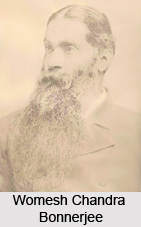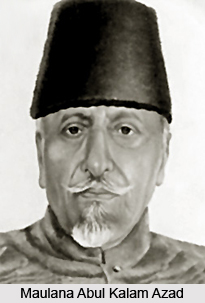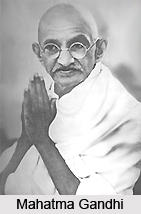 Moderates were the group of congressmen who dominated the affairs of the Congress from 1885 to 1905. They belonged to a class which was Indian in blood and colour, but British in tastes, opinions, morals and intellect. They were the supporters of British institutions. They believed that what India needed was a balanced and lucid presentation of her needs before the Englishmen and their Parliament and their demands were bound to be satisfied. They had faith in the British sense of justice and fair-play. India`s connection with the West through England was considered to be a boon and not a curse.
Moderates were the group of congressmen who dominated the affairs of the Congress from 1885 to 1905. They belonged to a class which was Indian in blood and colour, but British in tastes, opinions, morals and intellect. They were the supporters of British institutions. They believed that what India needed was a balanced and lucid presentation of her needs before the Englishmen and their Parliament and their demands were bound to be satisfied. They had faith in the British sense of justice and fair-play. India`s connection with the West through England was considered to be a boon and not a curse.
The Moderates believed in loyalty to the British crown. This fact is clearly brought out by the statements made from time to time by the Moderate leaders. The Moderates relied upon the solemn pledges given by the British Government to the people of India from time to time and the Queen`s Proclamation of 1858 was one of them.
The Moderates believed in orderly progress and constitutional agitation. They believed in patience, steadiness, conciliation and union. The Moderates believed in Constitutional agitation within the four corners of law. They believed that their main task was to educate the people, to arouse national and political consciousness and also to create a united public opinion on political consciousness. For that purpose they held meetings. They criticised the government through the press. They drafted and submitted memorials and petitions to the government, to the officials of the Government of India and also to the British Parliament. They also worked to influence the British Parliament and British public opinion and a lot of money was spent for years for that purpose.
The object of the Moderates was the "wider employment" of Indians in high offices in the public services and the establishment of representative institutions. The Moderates were fully aware of the fact that India was a nation in the making. So they worked constantly for the development and consolidation of the feeling of national unity irrespective of region, caste or religion. They hoped to make a humble beginning in this direction by promoting close contacts and friendly relations among people from different pa
rts of the country.
 The economic and political demands of the Moderates were formulated with a view to unify the Indian people on the basis of a common political programme. They organised a powerful all-India agitation against the abandonment of tariff-duties on import and against the imposition of cotton excise duties. The agitation aroused the feelings of the people and helped them to realise the real aims and purposes of British rule in India.
The economic and political demands of the Moderates were formulated with a view to unify the Indian people on the basis of a common political programme. They organised a powerful all-India agitation against the abandonment of tariff-duties on import and against the imposition of cotton excise duties. The agitation aroused the feelings of the people and helped them to realise the real aims and purposes of British rule in India.
The Moderates carried on an agitation for the reduction of heavy land revenue assessments. The urged the government to provide cheap credit to the peasantry through agricultural banks and to make available irrigation facilities on a large scale. They asked for improvement in the conditions of work of the plantation labourers. They demanded a radical change in the existing pattern of taxation and expenditure which put a heavy burden on the poor while leaving the rich, especially the foreigners with a very light load. They also demanded the abolition of salt tax which hit the poor and lower middle classes hard.
The Moderates complained of India`s growing poverty and economic backwardness and put all the blame on the policies of the British Government. They blamed the government for destruction of the indigenous industries in the country. They demanded the rapid development of modern industries and wanted the government to give tariff protection to the Indian industries. They advocated the use of Swadesi goods and boycott of British goods. They demanded that the economic drain of India by England must stop.
The Moderates criticised the individual administrative measures and worked hard to reform the administrative system which was ridden with corruption, inefficiency and oppression. They demanded the Indianisation of the higher grades of the administrative services.
The Moderates demanded the separation of the Judiciary from the executive. They were opposed to the policy of disarming the people of India by the Government. They wanted the government to spend more money on the spread of education in the country. They took up the cause of the Indians who had migrated to the British colonies.
The Moderates opposed tooth and nail the restriction imposed by the Government on the freedom of speech and the press. The Moderates demanded the expansion and reform of the existing Legislative Council. They demanded the introduction of the system of direct elections and an increase in the number of members and powers of the Legislative Council.
 The Moderates demanded the expansion and reforms of the existing Legislative Council. They demanded the introduction of the direct system of direct elections and an increase in the number of members and powers of the Legislative Council. They demanded a larger share for the Indians in the Legislative Councils. Later on, the Moderates had even put forward the claim for Swarajya or self-government within the British Empire on the model of the self-governing colonies.
The Moderates demanded the expansion and reforms of the existing Legislative Council. They demanded the introduction of the direct system of direct elections and an increase in the number of members and powers of the Legislative Council. They demanded a larger share for the Indians in the Legislative Councils. Later on, the Moderates had even put forward the claim for Swarajya or self-government within the British Empire on the model of the self-governing colonies.
The basic weakness of the Moderates lay in their narrow social base. Their movement did not have wide appeal. The area of their influence was limited to the urban community. As they did not have the support of the masses, they declared that the time was not ripe for throwing challenge to the foreign rulers. It can be said that the programmes and policies of the Moderate leaders fought for their narrow interests. Their programmes and policies championed the cause of all sections of the Indian people and represented nation-wide interests against colonial exploitation.



















